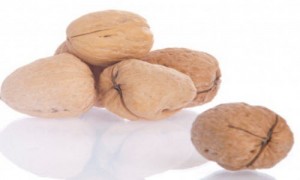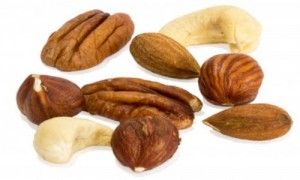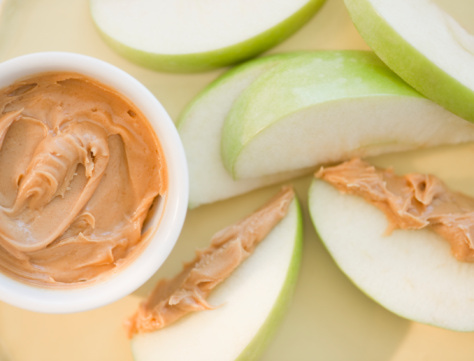Manganese significance and its deficiency
Human body is made up of many natural elements found in traces. Inside our body, these elements play a significant role. functioning of many biochemical process. Though their requirements in our bodies are in micrograms, their actions are inevitable. One such important component is Manganese. It is widely distributed in brain, kidney, liver and pancreas.
The absence of manganese from your diet can lead to some serious consequences. Legumes, nuts, green leafy vegetables, whole grains, tea, etc. are rich in manganese.
So let see, what is Manganese good for and why it is important?
(Src)
Health Benefits of Manganese
The word Manganese originated from a Greek word Magic. Manganese is a chemical element, often referred as mn. It is not available as a free metal. Usually, it is found in combination with iron. Manganese acts as co-factor for many enzymes and biological processes.
(Src)
Role of manganese in the human body.
- Strong bones
For healthy growth of human bones manganese is very essential.Osteoporosis and arthritis are possible complications associated with manganese deficiency . Whatever manganese we consume is stored in bones, liver and kidney. Any deficiency of manganese will directly affect these organs and their activities. Manganese is an essential mineral that contributes to bone density and bone repair. Some research suggested that manganese supplementation can improve BMD ( Bone Mineral Density).
- Blood Pressure
Studies suggested that Manganese has the strongest association with blood pressure. Manganese also plays an important role in normal cardiac functioning.
- Fights cancer
The anti-oxidant properties of manganese help protect your body from cancers. It prevents cancer by binding free radicals, which causes cancer.
- Control Blood Sugar
Manganese deficiency can affect glucose transport and metabolism in adipose cells. Regular intake of manganese can help you avoid diabetes. Some studies have shown that insulin release was lower among manganese deficit people. This may lead to abnormal carbohydrate metabolism and high blood sugar level.
- Epilepsy
Manganese plays a vital role in brain functioning. It is believed that regular consumption of manganese can aid in controlling epilepsy attacks. The exact role of manganese is not known in epilepsy. But some believe that manganese helps in relaxing blood vessels. Hence, the chance of epilepsy attacks is reduced
- Tissue Integrity
Manganese and copper help in maintaining tissue integrity. The same studies also suggested that they can induce lipid peroxidation (breakdown of fat).
- Healthy Skin
Collagen is a major component responsible for the skin elasticity and firmness. It is believed that manganese assists in the production of this element. Manganese can also protect the skin against damage from ultra-violet light.
- Helps to prevent thyroid problems
Manganese is also found in Thyroxin, an important hormone present in the thyroid gland. Studies have shown that manganese has an effect on Thyroid Hormones. Other complications related to thyroid hormones are weight loss and appetite problem.
- Brain and Nervous System
Manganese is referred as “brain mineral”. It has an ability to bind with neural signals to stimulate faster. The deficiency of manganese can cause an imbalance of NMDA (N-methyl-D-aspartate) level in the brain. This chemical controls the brain activity. Any imbalance in this chemical can result in depression and neurological dysfunction. Some research have also postulated that a remarkable reduction of manganese is observed in traumatic brain injury.
- Protects growth hormones
Manganese is capable of stimulating hypothalamic-pituitary hormones (growth hormones). Research have shown that manganese can protect these hormones from unhealthy components like alcohol.
- Anti-Inflammatory properties
MnSOD (Manganese superoxide dismutase) is an enzyme located in Mitochondria. It protects the energy-generating mitochondria from oxidative damage. Disease like Arthritis is caused by the lack of anti-inflammatory properties. It is observed that same enzyme also provides anti-inflammatory properties.
- Helps women to overcome PMS syndrome
It is believed that women with PMS suffer from mood swings, depression, headaches, and irritability. Manganese as we know has some significant role in brain and hormonal functioning. Studies have shown that a proper intake of manganese can help women to reduce the symptoms of PMS (premenstrual syndrome).
- Reduce constipation
Manganese can help in constipation as it aids in the functioning of the digestive tract. During digestion, it improves the absorption of fat and reduces bowel discomfort.
- Lower Cholesterol
Decreased level of saturated fat can reduce serum cholesterol level. This eventually helps to lessen the cardiovascular disease and risk associated with it. Studies have shown that manganese and calcium can prevent the absorption of the dietary fat.
- Quinolones induced arthropathy ( joint cartilage lesions)
Quinolone is a drug often used as an anti-infective agent. Quinolone induced arthropathy (joint cartilage lesion) can be caused due to manganese deficiency.
Manganese Deficiency Symptoms
(Src)
The reason behind Manganese deficiency can be malnutrition or medical complications. But some symptoms can help identifying Manganese deficiency.
- Brittle bone and Joint pain
If you often see a physician for fractured bones or joint pain then probably you might have manganese deficiency. Manganese is an essential mineral responsible for bone density. Absorption of manganese is usually not affected by most dietary factors.
- Tiredness and Anxiety
Mood swings, nervousness, and tiredness can be an indication of manganese deficiency. Studies have suggested that manganese deficiency can have an effect on the brain and may cause anxiety. Some research has shown that imbalance in manganese (mn element) can lead to Attention-Deficit/ Hyperactivity Disorder (ADHD).
- Poor Wound Healing
Manganese is responsible for wound healing and provides anti-inflammatory properties. It is also believed that it helps in collagen production, the prime factor in wound healing.
- Heavy menstruation in women
Deficiency of manganese can lead to infertility and problems conceiving a child. There are few more symptoms that some people see with deficiency of Manganese. This includes increase blood sugar, hearing impairment, dizziness, weak hair, elevated calcium level, etc.
Foods High In Manganese
(Src)
Some good source of Manganese
Nearly all our regular foods have this mineral in good proportion. Most of the plant foods are rated as a good source of Manganese.
Following is the list of food rich in Manganese
- Nuts (Hazelnut, cashewnut, groundnut)
- Sea-food (Mussels, fish, lobster, Oyster)
- Seeds (Pumpkin)
- Tofu
- Beans
- Black Tea
- Spinach or Kale
Daily requirement of Manganese
(Src)
Manganese intake in right proportion is important. Anything above or less to its standard requirement may lead to some complicated conditions.
Here are some recommended standard for manganese in your daily diet.
| Age Group | Male | Female |
| Teenagers | 2.2 mg/day | 1.6 mg/day |
| Adults | 2.3 mg/day | 1.8 mg/day |
| Pregnant/ lactating women’s | —– | 2.0- 2.6 mg/day |
People not taking enough manganese in their diet have to depend on manganese supplements.
Before using manganese supplement, you need to take care of following things.
- Allergy:If allergic to any of the constituent of manganese supplement. Tell your doctor.
- Pregnancy: Relying on a large amount of dietary supplement may not be advisable for expecting mother. In such case, take advice from the doctor.
- Avoid alcohol/tobacco: Certain supplement may not be effective with addiction to alcohol/tobacco.
There is a misconception that manganese supplement prevent iron absorption. The studies suggested that minerals like mn+2, hg+2, or pb+2 does not inhibit the uptake of iron.
Caution:
Manganese is one of the toxic minerals in the body. To avoid manganese toxicity, one has to be careful on its intake. The requirement of manganese in our body is very low.
Manganese can interact with the absorption of antibiotics. It is advisable that a person on antibiotics should take manganese supplement an hour after taking antibiotics. Make sure to speak to your doctor.
Manganese in excess is toxic to neurons. Manganese overdose can cause some serious complications like Parkinson’s and dystonia ( muscular spasm). Manganese toxicity also includes neural death.
The role of manganese is not limited to humans only. Even in animals and plants, they have an important role to play.










